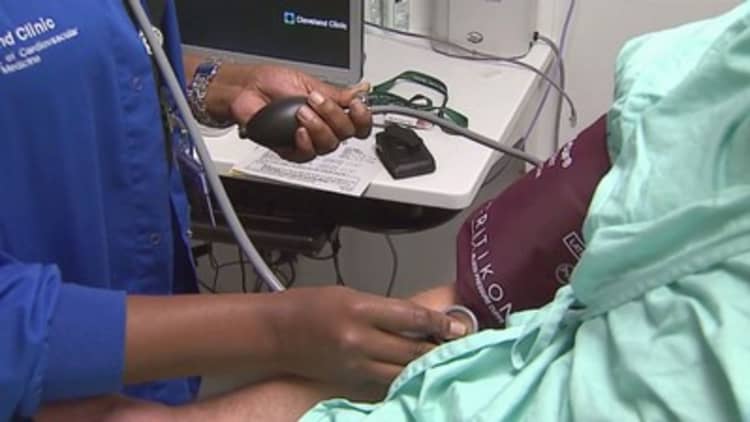A health start-up called Grail is developing one of the most ambitious technologies in Silicon Valley.
And Amazon wants a piece of it.
According to two sources familiar, Amazon invested in Grail as a very special kind of future customer for its cloud business.
Grail is hoping that its can use deep sequencing technology to detect the earliest signs of cancer in the blood, while it's still treatable. That requires a huge amount of data processing and storage.
That's potentially a huge business for Amazon Web Services.
Reuters reported that the market to store human genetic data is expected to be worth $1 billion by 2018. By 2025, an anticipated 100 million and 2 billion human genomics could be sequenced, according to a 2015 report. Biologists have long-anticipated that the computing resources to handle all that data would outweigh Twitter and YouTube.
Grail's test will not be commercialized in the U.S. for years -- it is aiming for 2019 -- but it will be dabbling in huge data-sets well before then.
It needs to run large-scale clinical studies to demonstrate to industry stakeholders that its technology is both sensitive and accurate. Hundreds of thousands of people will need to be sequenced for each of these studies. And the genomes will need to be securely stored somewhere.
Amazon's investment, initially reported earlier this year, was a little surprising. The e-commerce and cloud services leader doesn't typically bet on start-ups in the regulated life sciences sector. Moreover, Grail CEO Jeff Huber, was a long-time executive at Google, an Amazon rival. (Google also invested in an earlier fund-raising round for Grail through GV, its venture arm, now a division of Google holding company Alphabet.)
But these companies are "positioning themselves for something they think will be big," said Zamin Iqbal, who leads a computational genomics research group at the European Bioinformatics Institute.
Iqbal doesn't expect revenues to be significant yet, in part due to privacy concerns and lack of uptick for whole genome analysis from health providers.
But that could all change in the coming years. "The future of genomics is likely to involve the cloud heavily," he continued.
Another factor that drew Amazon into the deal was Grail's presence in Asia, the people said. In March, the company merged with a blood diagnostics company in China. Amazon Web Services has announced it plans to open a new data center "region" in Hong Kong in 2018.
WATCH: Amazon is showing interest in health care, and it's making industry players 'nervous,' says investor

Correction: Amazon Web Services has had regional data centers in the Asia-Pacific area since 2010, when it launched its Singapore region.


